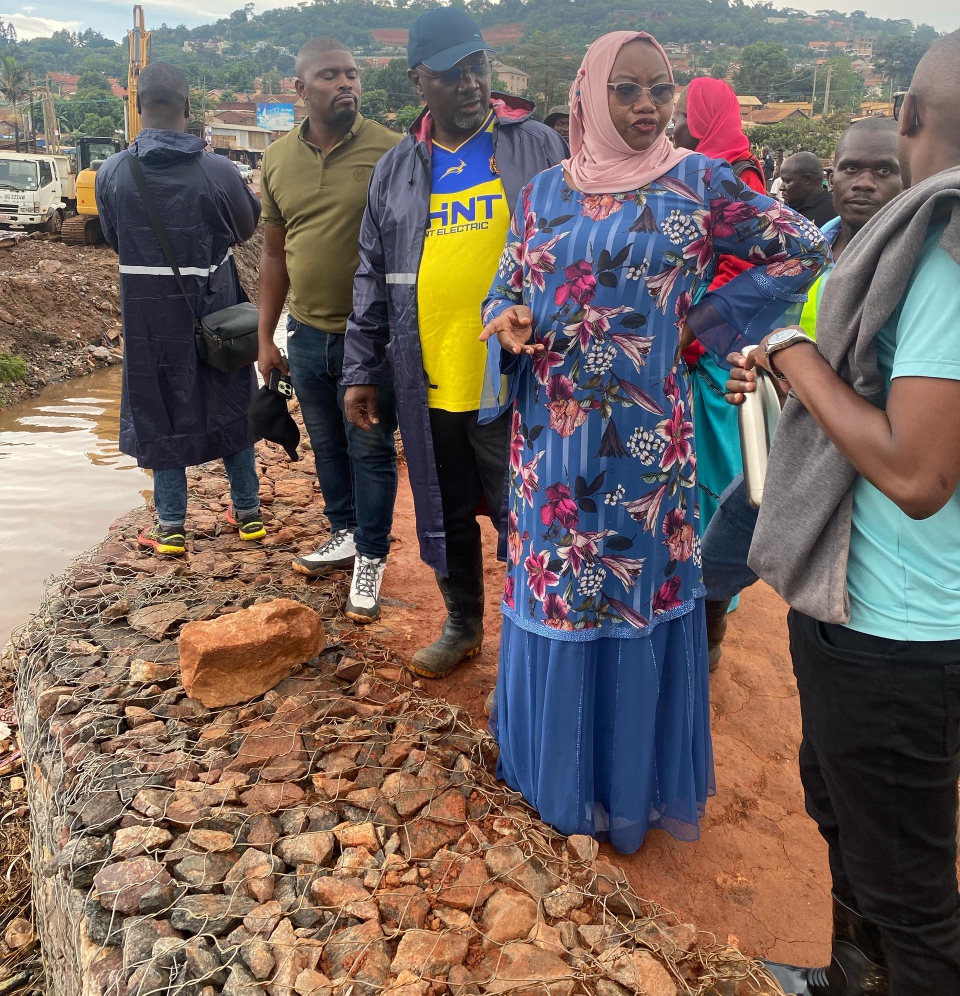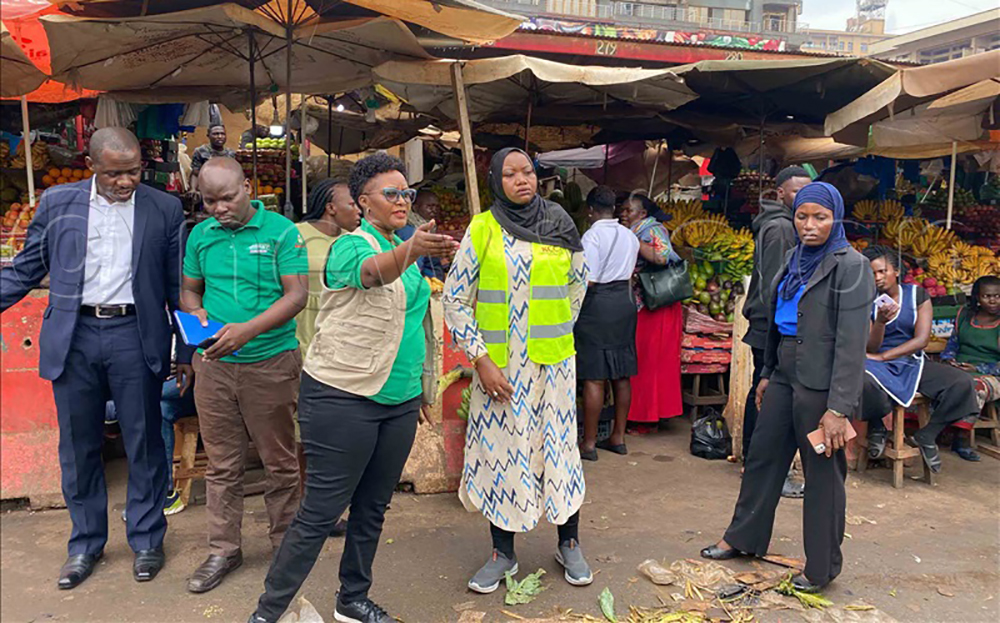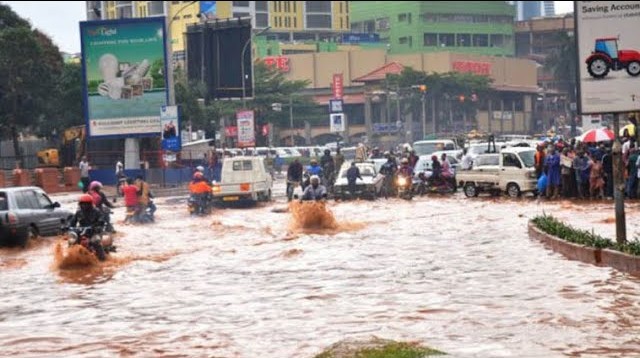The rainy season is here, a huge relief from the scotching heat and dusty roads of the past months. The temperatures were on a rampage, causing a lot of discomfort. The blend of heat and dust is hell on earth. There has been a rush to fast track the completion of many roads before the rainy season. This led to huge plumes of dust causing a lot of health issues. However, Kampala residents were willing to contend with the discomfort in the hope that this would render the answer to the daily cries about potholes and impassible roads. Unfortunately, the advent of the rainy season, has come with two distractions, the effect on the speed of road construction and the heavy flooding that wrecked many parts of Kampala metropolitan area.
Whereas it is true some drainage channels are under construction which affected the normal flow of rain water, the biggest cause of these massive floods is attributed to our bad manners of garbage disposal. Kampala is a city of swamps and wetlands. Most inhabitants in informal settlements do not have well a streamed scheme of garbage disposal. So the garbage is either burnt or disposed off in any nearby convenience. This single act of irresponsibility is the cause of the havoc caused by floods in Kampala. There has been lack of knowledge about garbage disposal, the populace has not been trained how to separate bio-degradable from recyclable garbage. This causes a challenge to those charged with collecting garbage. Separating glass bottles, polyethylene bags, plastic bags and bio-degradable is a daunting task. This results into poor handling of garbage.
Crowded informal settlements (slums) generate huge amounts of garbage. The inhabitants have low incomes to pay for garbage collection while others lack means of disposal, hence dumping garbage in the drainage channels that lead to blockage causing heavy floods in Kampala. However, it is not just about lacking means of disposal, but also the culture of “I do not care attitude.” People look at community hygiene as the work of city authority, not realizing that diseases, floods and foul environment affect them personally. It is quite condescending that when disaster strikes, they are the first casualties. Surprisingly, they blame authorities for not doing much to ameliorate the dire straits. The numbers that have drowned are a result of wrong judgement. Houses built on riparian land, farming in wetlands and deliberate blocking of drainage channels to reclaim swampy areas. There is a general feeling that those who cannot afford plots on regular lands and have built in wetlands, have a right of occupancy since they have stayed on the land for long.

It also gets to the point where they blame the city authorities for ignoring them as they built on riparian land without discouraging them. This lame reasoning is sometimes compounded by local politics. The local leaders who should have guided the residents, play politics siding with the voters, even when it is clear that the act of encroaching on drainage channels is illegal. Recently, Erias Lukwago, the mayor, instead of admonishing city residents that throw garbage in Nakivubo channel, he instead blamed Hajji Hamis Kigundu for encroaching on the channel, despite the fact that he had an approved plan issued by the same city authority.
As part of bad manners, Kampala city Authority, every rainy season, floods are treated as an expected surprise, which wasn’t anticipated or even unexpected. This is a mixture of hypocrisy, poor judgement and weak leadership. Most parts of Kampala are low lying areas, prone to floods, but the biggest challenge is the blockage of drainage channels due to silting and accumulated garbage. This fact is known, so why would City authority behave like it is a new phenomenon? Why not desilt or widen the drainage during dry season, instead of waiting for disaster to strike and treat it as an emergency. Some of the deaths would have been avoided with prior planning.
City authorities and NEMA give clearance to industrialists to set up industries in wetlands. The natural water paths are blocked, rendering no movement. The stagnation builds up into large volumes of water, causing floods. The same wetlands are inhabited by people who end up victims of the irresponsible decisions of state bodies. NEMA has adversely been accused of discrimination against low income earners, while ignoring the excesses of rich industrialists who encroach on wetlands. Several informal settlements have been demolished while saving the big boys in the same vicinity. This breeds impunity and resentment. It should not be a knee jack reaction, the residents must be sensitized about the dangers of poor utilization of wetlands. Clear demarcation of riparian land and regular surveillance to ensure compliance.

One most intriguing question is why KCCA does not enforce ordinances on garbage disposal. There are well laid down rules and regulations that are ignored with reckless abandon. To solve the garbage problem, culprits should not be handled with kid gloves. KCCA is supposed to collect garbage, but how often does it pick this garbage in relation to the rate at which it accumulates. This breeds frustration, where people look for alternatives of disposal and one of them is drainage channels. Burning waste is hazardous, but sometimes it becomes the only relief to reduce the accumulated volumes in homes. Private collectors target those with ability to pay, but the irony is that the rich do not generate large volumes of garbage compared to the low income earners. The effect is not felt. If KCCA does not have the capacity to collect garbage, it should contract private firms to collect it based on communities or villages and not specific homes. This would mean all the villages are included in the plan.
By the way, rich and poor suffer equally when floods strike. Roads, bridges, houses are washed way affecting all road users. It should be a concerted effort of all people, working closely with authorities to enforce ordinances and by-laws. It is wrong to think that a section of the population should be more concerned than the other. In the wake of a disaster, no one is a winner.




